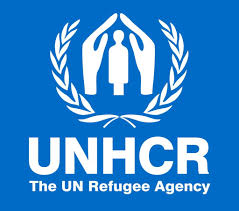UN Opposes Relocation of Rohingya Refugees to Remote Island
ASIA-UPDATES ON MYANMAR ROHINGYA GENOCIDE, 4 Jan 2021
Elishya Perera | Commonwealth Business Network - TRANSCEND Media Service
8 Dec 2020 – The United Nations High Commissioner for Refugees (UNHCR) says it opposes the relocation of Rohingya refugees from Cox’s Bazar, Bangladesh, to a remote island in the Bay of Bengal, which is vulnerable to cyclones and prone to flooding.
 According to UNHCR spokesman Babar Baloch, the United Nations has limited information on the overall relocation process and is not involved in the operation whatsoever.
According to UNHCR spokesman Babar Baloch, the United Nations has limited information on the overall relocation process and is not involved in the operation whatsoever.
Bangladeshi authorities moved more than 1,500 Rohingya refugees to Bhasan Char, on Friday (Dec 04), as part of the government’s plan to move 100,000 refugees to the uninhabited Bay of Bengal island.
The UN is has called on the government to respect its commitment that the movements to the island would be voluntary, and urged that the refugees be provided with the information they would require to make a free and informed decision about relocating to Bhasan Char.
“We have heard reports from the camps that some refugees may feel pressured into relocating to Bhasan Char or may have changed their initial views about relocation and no longer wish to move. If so, they should be allowed to remain in the camps,” Baloch said.
Moreover, the United Nations has also requested the government to permit onsite visits in order to verify that the island is a safe and sustainable place to live. Baloch says the refugees must be protected from natural disasters and other dangers, and must have access to health, livelihood and education.
According to the UN Refugee Agency (UNHCR), more than 723,000 refugees fled prosecution and violence in Myanmar for Cox’s Bazar where they are living in overcrowded camps.
Over the past three years, Bangladeshi authorities have been building a new town in the island of Bhasan Char, at a cost of $350m (£270m), with the aim of relocating more than 100,000 refugees in order to ease tensions within the camps.
Earlier this year, Amnesty International released a report on the conditions faced by the Rohingya already living on the island, which sparked outrage. The report contained allegations of limited food and healthcare facilities, cramped and unhygienic living conditions, as well as cases of sexual harassment by both the Navy and local labourers engaging in extortion.
However, Bangladeshi authorities have denied these claims.
Tags: Asia, Aung San Suu Kyi, Bangladesh, Buddhism, Burma/Myanmar, Cultural violence, Direct violence, Ethnic Cleansing, Free Rohingya Coalition, Genocide, History, Human Rights, Institute on Statelessness and Inclusion, International Court of Justice ICJ, Justice, Maung Zarni, Racism, Religion, Rohingya, Social justice, Structural violence, Tendayi Achiume, United Nations, Yanghee Lee
DISCLAIMER: The statements, views and opinions expressed in pieces republished here are solely those of the authors and do not necessarily represent those of TMS. In accordance with title 17 U.S.C. section 107, this material is distributed without profit to those who have expressed a prior interest in receiving the included information for research and educational purposes. TMS has no affiliation whatsoever with the originator of this article nor is TMS endorsed or sponsored by the originator. “GO TO ORIGINAL” links are provided as a convenience to our readers and allow for verification of authenticity. However, as originating pages are often updated by their originating host sites, the versions posted may not match the versions our readers view when clicking the “GO TO ORIGINAL” links. This site contains copyrighted material the use of which has not always been specifically authorized by the copyright owner. We are making such material available in our efforts to advance understanding of environmental, political, human rights, economic, democracy, scientific, and social justice issues, etc. We believe this constitutes a ‘fair use’ of any such copyrighted material as provided for in section 107 of the US Copyright Law. In accordance with Title 17 U.S.C. Section 107, the material on this site is distributed without profit to those who have expressed a prior interest in receiving the included information for research and educational purposes. For more information go to: http://www.law.cornell.edu/uscode/17/107.shtml. If you wish to use copyrighted material from this site for purposes of your own that go beyond ‘fair use’, you must obtain permission from the copyright owner.
Read more
Click here to go to the current weekly digest or pick another article:
ASIA-UPDATES ON MYANMAR ROHINGYA GENOCIDE: